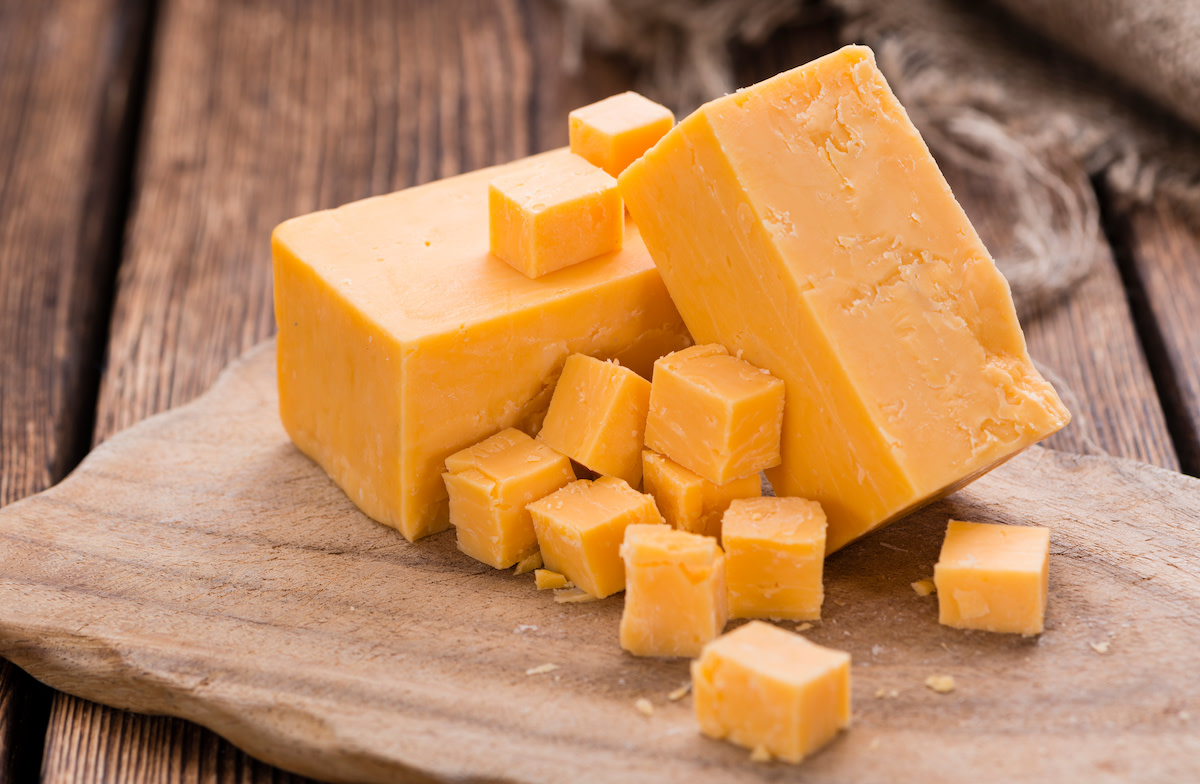Gouda vs. Cheddar: 6 Differences Between the Cheese Types
Written by MasterClass
Last updated: Feb 25, 2022 • 3 min read
In the conversation of Gouda vs. cheddar, it’s more than just the cheesemaking process that sets these cheeses apart from each other.
Learn From the Best
What Is Gouda?
Gouda is a cow’s milk cheese from the area around Gouda, a city in the region of Holland in the Netherlands. Many other places produce Gouda-style cheese, but the product must include milk (pasteurized or unpasteurized) exclusively from Dutch cows to use the Gouda label. Gouda is a semihard cheese with a nutty flavor and a signature orange or red rind. Popular uses for Gouda cheese include cheese boards, grilled cheese sandwiches, fondue, or cheese sauces (such as for mac and cheese).
There are seven types of Gouda, ranging from young Gouda to aged Gouda. Specific types of Gouda include graskaas, boerenkaas, and smoked Gouda. Melting cheeses, such as Havarti, cheddar, Muenster, Emmentaler (Swiss cheese), Monterey Jack, Edam, and Gruyère, are good substitutes for Gouda in cheese recipes.
What Is Cheddar?
Cheddar is a cow’s milk, pressed curd cheese with low fat content and a slightly crumbly texture. Aged cheddar is crumblier, while younger cheddar is creamier. Traditional cheddar cheese is pale yellow, but white cheddar and orange cheddar also exist. Orange cheddar’s color comes from annatto, the fruit of the achiote tree. Types of cheddar flavors include mild cheddar, sharp cheddar, and extra sharp cheddar.
Englishman Joseph Harding is responsible for developing the modern cheddar cheese production process during the nineteenth century. Now countries all over the world make cheddar. In the United States, the states of New York, Vermont, and Wisconsin are popular areas of cheddar production.
6 Differences Between Gouda and Cheddar
Both cheddar cheese and Gouda cheese are dairy products, but there are differences between the two:
- 1. Cheddar has a stronger flavor. Gouda cheese has a sweet and nutty flavor, whereas cheddar cheese’s flavor is less sweet, more buttery, and overall stronger. You can use Gouda and cheddar interchangeably in many cheese recipes. The flavor differences between the two are subtle but still noticeable.
- 2. Cheddar is a harder cheese. Better for grating and slicing, cheddar cheese is harder than Gouda cheese, which is a semihard cheese. The cheddar-making process presses the cheese curds into molds, compressing as much whey out of the curds as possible to form the hard cheese.
- 3. Gouda possesses a rind, while cheddar is rindless. Most cheese varieties have a washed rind, natural rind (like Parmesan), or wax rind, or are clothbound, but cheddar cheese is rindless. Gouda cheese has its signature natural rind that is yellow or orange as a result of the paraffin wax casing.
- 4. Gouda has a higher fat content. With a fat content of seventy-six percent, Gouda is a creamy cheese and slightly oily to the touch. The fat content in cheddar ranges from seven percent to forty percent, depending on the milk the producers use.
- 5. Gouda receives origin protection, while cheddar does not. Cheddar production happens worldwide without limitations on what products carry the cheddar label. On the other hand, the European Union limits which products can carry a Gouda label, protecting both Noord-Hollandse Gouda and Gouda Holland.
- 6. Gouda melts more easily. The higher fat content in Gouda cheese makes it a meltier cheese than cheddar. Cheddar is a melting cheese but melts differently due to its lower fat content. Cheddar cheese is a popular cheese to use on burgers, in casseroles, or with mozzarella cheese on pizza, while Gouda is a good option for a grilled cheese sandwich or fondue.
Mise En Place
To perfect the mother sauces and make French cuisine at home, you must master essential cooking techniques. Discover Chef Thomas Keller’s approach to setting up a home kitchen and sourcing quality ingredients like fish and clams when you sign up for the MasterClass Annual Membership.
